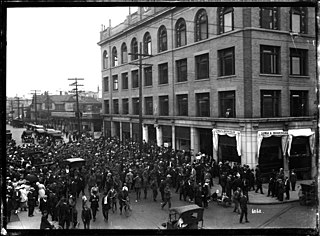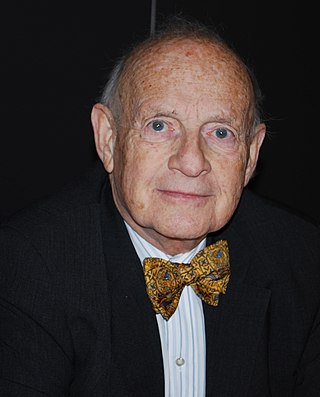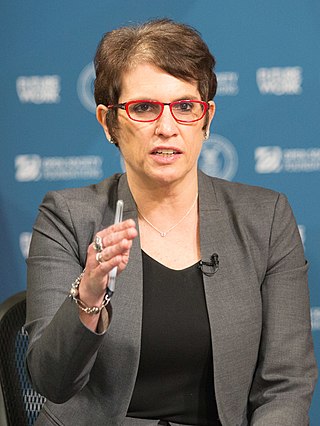Research interests
Bernard's research interests are widespread and varied. Her writings often focus on women and the traditionally female jobs, to which she brings a feminist and highly class-conscious theoretical perspective. She continues to focus on workers in the telecommunications industry, and the role technological change plays in altering work. In the last several years, she has publicly discussed how advancing technology will change how labor unions function (especially in regard to member-to-member and union-member communication and organizing).
Bernard's primary reputation, however, is as public speaker. She is provocative and blunt, and has been known to pleasantly shock audiences with her off-color language. [4] Bernard often takes the American labor movement to task for not being aggressive enough in pushing its agenda, too willing to couch its opinions and conclusions in objective language, and for not engaging in strategic thinking. As Bernard herself has stated, her prescription is for the American labor movement "to be bold, to be explicit, be as loyal to labor as the business school is to business. Be audacious!" [5] Such statements, as well as her skills as an orator, have made her much sought-after as a panelist and public speaker.

The Telecommunications Workers Union (TWU) was a trade union in Canada for people working for telephone and cable companies. Although the TWU had members from Shaw Cable in the Vancouver area of British Columbia, Canada, the majority of TWU members were employees of Telus. It was founded on September 1, 1944 and existed until December 31, 2014. In November 2014 the members voted to join the United Steel workers of America. Per the merger agreement the independent status of the Union which had represented Telecommunications Workers in Canada for over 70 years came to an end. The new local is known as "Telecommunications Workers Union, United Steelworkers Local 1944" and is a local of the United Steel Workers of America an 860,000 member union.
The Labor and Worklife Program (LWP) at Harvard Law School is described as "Harvard University's forum for research and teaching on the world of work and its implications for society." The LWP grew out of the Harvard Trade Union Program (HTUP), an executive training program for labor leaders around the world that had been founded in 1942. Designed to provide a broader platform for research on transformations in the world of work, the Labor and Worklife Program was launched in September 2002 and joined the many research centers housed at Harvard Law School.
The Socialist Party of British Columbia (SPBC) was a provincial political party in British Columbia, Canada, from 1901 to 1905. In 1903, the SPBC won seats in the Legislative Assembly of British Columbia.
David Brody is an American historian, who is professor emeritus of history at the University of California-Davis.

Ruth Milkman is an American sociologist of labor and labor movements. She is Distinguished Professor of Sociology at the Graduate Center, CUNY and the director of research at CUNY School of Labor and Urban Studies. Between 1988 and 2009 Milkman taught at the University of California, Los Angeles, where she directed the UCLA Institute for Research on Labor and Employment.
Irving Bernstein was an American professor of political science at the University of California, Los Angeles and a noted labor historian.

Helena Gutteridge was a feminist, a suffragist, a trade unionist and the first female city councillor in Vancouver, British Columbia, Canada. Helena was recognized for being a pioneer in pushing for women's rights in British Columbia during a time when gender equality was not yet a prominent social movement and discourse.

The One Big Union (OBU) was a Canadian syndicalist trade union active primarily in the western part of the country. It was initiated formally in Calgary on June 4, 1919, but lost most of its members by 1922. It finally merged into the Canadian Labour Congress in 1956.

The Vancouver general strike which took place on 2 August 1918, was the first general strike in Canadian history. There had been talks of organizing a general strike for quite some time due to federal conscription, censorship of socialist publications, and workers' demands for higher wages. War-time inflation reduced real income profoundly and throughout the First World War Vancouver shipbuilders experienced a labour shortage. Numerous government policies had suppressed the work of labour activists such as strikes, lockouts and certain presses being banned. Workers were also inspired by factors such as the Bolshevik Revolution the previous year and the rising cost of living. The strike was eventually organized as a one-day political protest after the killing of draft evader and labour activist Albert "Ginger" Goodwin on 27 July. He had previously called for a general strike in case any worker was drafted against their will.

Arnold M. Zack has served as an arbitrator and mediator of labor management disputes since 1957. Born on October 7, 1931, in Lynn Massachusetts, he is a graduate of Tufts College, Yale Law School and the Harvard University Graduate School of Public Administration. He was a Fulbright Scholar, a Wertheim Fellow, President of the National Academy of Arbitrators and member of the College of Labor and Employment Lawyers. He served as a judge of the Asian Development Bank Administrative Tribunal and was President of the Tribunal since 2010. He also served and taught as senior research associate at the Labor and Worklife Program of Harvard Law School and the Harvard Trade Union Program since 1985.

Joan Greenbaum is an American political economist, labor activist, and Professor Emerita at the CUNY Graduate Center and LaGuardia Community College. She also taught and conducted research at Aarhus University, and the University of Oslo (Informatics) (1995–96). Her numerous books and articles focus on participatory design of technology information systems, technology and workplace organization, and gender and technology.

Richard Parmater (Parm) Pettipiece was a Canadian socialist and publisher. He was one of the founders of Socialist Party of Canada, and one of the leaders of the Canadian socialist movement in British Columbia in the early 20th century. Later he moved into the moderate trade union movement, and for many years was a Vancouver alderman.

The UCLA Institute for Research on Labor and Employment (IRLE) is an interdisciplinary research unit within the College of Letters & Science, Division of Social Science, dedicated to research, teaching, and discussion of labor and employment issues. It was founded in 1945 as the UCLA Institute of Industrial Relations. It is one of the two research programs in the University of California system along with the UC Berkeley Institute for Research on Labor and Employment. The IRLE consists of four bodies: the IRLE Academic Unit, UCLA Labor Center, Human Resources Round Table, and the Labor Occupational Safety and Health Program.

Elaine Black Yoneda was an American labor and civil rights activist, member of the Communist Party and candidate for political office in California.
Jessica Govea Thorbourne was a labor activist, United Farm Worker union leader, and educator. She is best known for her lifelong efforts to achieve justice, equality, education, and economic opportunity for Latino laborers. At age 58, she died from breast cancer in West Orange, New Jersey. However, she believed that the true source of her illness later in life was related to the damaging pesticides that she had worked with for years.
Helen Aileen Hooper Cowan is a Canadian painter and sculptor.
Roxana Chu-Yee Ng (1951–2013) was an activist and scholar for fair migrant labour, gender and racial equality, and decolonising pedagogy. She is noted for her research on the garment industry in Canada and its relation to immigration, gender, race, and class, as well as her contributions to institutional ethnography, embodied learning and critical pedagogy.

Sharon Block is an American attorney, government official, labor policy advisor and law professor who served during the Biden Administration as the Associate Administrator delegated the duties of the Administrator of the Office of Information and Regulatory Affairs from January 20, 2021 to February 1, 2022. During the Obama Administration, Block served on the National Labor Relations Board and in the United States Department of Labor and the White House. She currently serves as a Professor of Practice and the executive director of the Labor and Worklife Program at Harvard Law School.
Helen Potrebenko was a Canadian author and activist based in Vancouver. Her books were noted to be sharp-witted works that explored themes of feminism and spoke about the class divides and inherent misogyny in society. She was described as an uncompromising feminist writer who brought together ideas of Marxism and feminism in her works. Her most notable works included Taxi! (1975), No Streets of Gold (1977), A Flight of Average Persons (1979), and Sometimes They Sang (1986).











